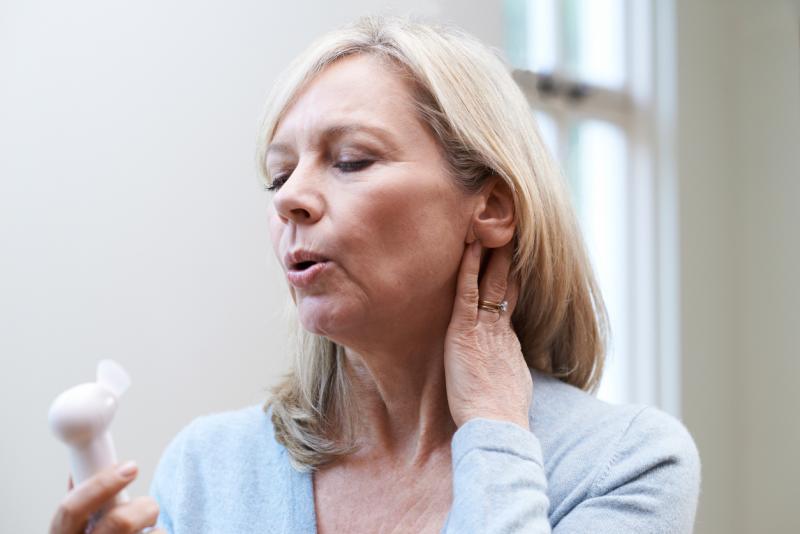With the recent spotlight on the gender pay gap, periods and #MeToo, women are opening up conversations on the issues that are most important to them. It’s no surprise that the dialogue is shifting to the menopause. Despite being one of the major life events in the biology of being a woman, it’s also still one of the most publicly undiscussed.
Experts from Health & Her® the first online platform of its kind, designed to support women through the menopause – want to break the taboo and lift the lid on the topic.
'Even if you’re not approaching or going through the menopause, chances are someone close to you is,” says Kate Bache, Health & Her® Co-Founder. “Women are being done a disservice through a lack of dialogue or support. Getting people talking about the topic may help you with your own symptoms or someone close to you.'
To help kickstart the conversation, a bank of Health & Her® experts in everything from nutrition to gynaecology have put together ‘Nine things you didn’t know you didn’t know about the menopause’.
-
Your symptoms might be the best guide to when you’ve reached menopause: Consultant gynaecologist Anne Henderson clarifies, “A common definition of menopause is when a woman has gone two years without a period if they’re under the age of 50, or one year, if they’re over 50. This can be a bit old-fashioned and it may be more helpful to base whether you’ve been through the menopause on symptoms.”
-
You can still get pregnant, even after your periods stop: “A woman can still be fertile, even after her periods seem to have stopped, so make sure contraception is covered for up to two years if you’re 51 years-old and under, and one year if you’re over 51!” warns registered nurse Ruth Devlin from “Let’s Talk Menopause’.
-
You can do yoga for hot flushes: Uma Dinsmore-Tuli, yoga therapy specialist for women’s health explains, “Think of this as human air-conditioning; it works on the same principle as a dog panting with its tongue lolling out to cool. It’s a great way to lower the temperature of the tongue, mouth, head and possibly the throat and rest of the body when you’re having a hot flush. Roll your tongue either back on itself or curling the edges round to make a straw shape and breath in slowly, taking the air over the surface of your tongue, allowing it to cool as you do. Relax the mouth and breathe out through your nose. Repeat this seven times; it might look funny but it works!” See the technique in action here.
-
If you feel like the pressure of the menopause is giving you a headache – it actually is: 'Oestrogen causes the blood vessels to expand and progesterone causes them to tighten. Around menopause there is fluctuation and imbalance of these hormones causing the blood vessels to keep expanding and contracting. This can lead to a build-up of pressure in the head resulting in pain – what’s commonly called a pressure headache,' says GP, Shilpa McQuillan.
-
It’s a marathon not a sprint: 'The average woman might experience menopause symptoms for around four years after that last period; however, one in 10 of us will live with symptoms for up to 12 years. It’s a marathon, not a sprint, and well worth investing in key pieces to help you stay chic and cool,' says stylist and designer, Gilly Woo.
-
A little belly fat can be good for you: Rosie Letts, nutritionist continues, 'Your body is always trying to find the ideal balance. In response to lower ovarian oestrogen, your body will lay down fat cells (particularly around your belly) capable of oestrogen production. It’s your body’s way of topping up hormones levels and whilst high oestrogen can cause an array of unpleasant symptoms, oestrogen docking stations are found all over your body helping to support bone and heart health, memory and concentration as well as your genitourinary system. So, a little belly fat is, in fact, helpful. An excess is associated with heart disease, so balance is key.'
-
You can use the power of your mind to conquer flushes and sweats: 'Several studies, in the UK and the Netherlands, with over 600 women, have shown that Cognitive Behaviour Therapy (CBT) significantly reduces the impact of hot flushes and night sweats, and has additional benefits to mood and quality of life,' says Emeritus Professor of Clinical Health Psychology, King’s College London, Myra Hunter, an international expert on the menopause.
-
Menopause can have a very real social effect: Julie Dennis, menopause coach and trainer explains, 'One in four women considers leaving work because of the severity of their symptoms – and one in ten actually does. Striking when you consider the average cost of replacing an employee in 2014 was estimated to be £30,000.'
-
You might experience your first panic attack: Jane Dowling, inspirational trainer behind the award-winning blog Meno&Me reveals, 'At 46 I was told I was perimenopausal. During this time, I had lots of stress to deal with and I noticed a big change both physically and mentally. I had my first panic attack at 46; it was scary. But I made small changes over time that had a big impact on my physical and mental health.'
With trusted and qualified menopause opinion from the UK’s top experts answering the biggest ranking questions posed by women online, Health & Her® features articles from gynaecologists and leading psychologists, as well as womb yoga teachers and everything through to career coaches and celebrity make-up artists. Designed to support women to take control of their menopause, the site offers a free Menopause Symptom Tool & Tracker to help individuals understand and improve their menopause experience in three simple steps; as well as hand-picked products, carefully curated and recommended by women who have been there.









